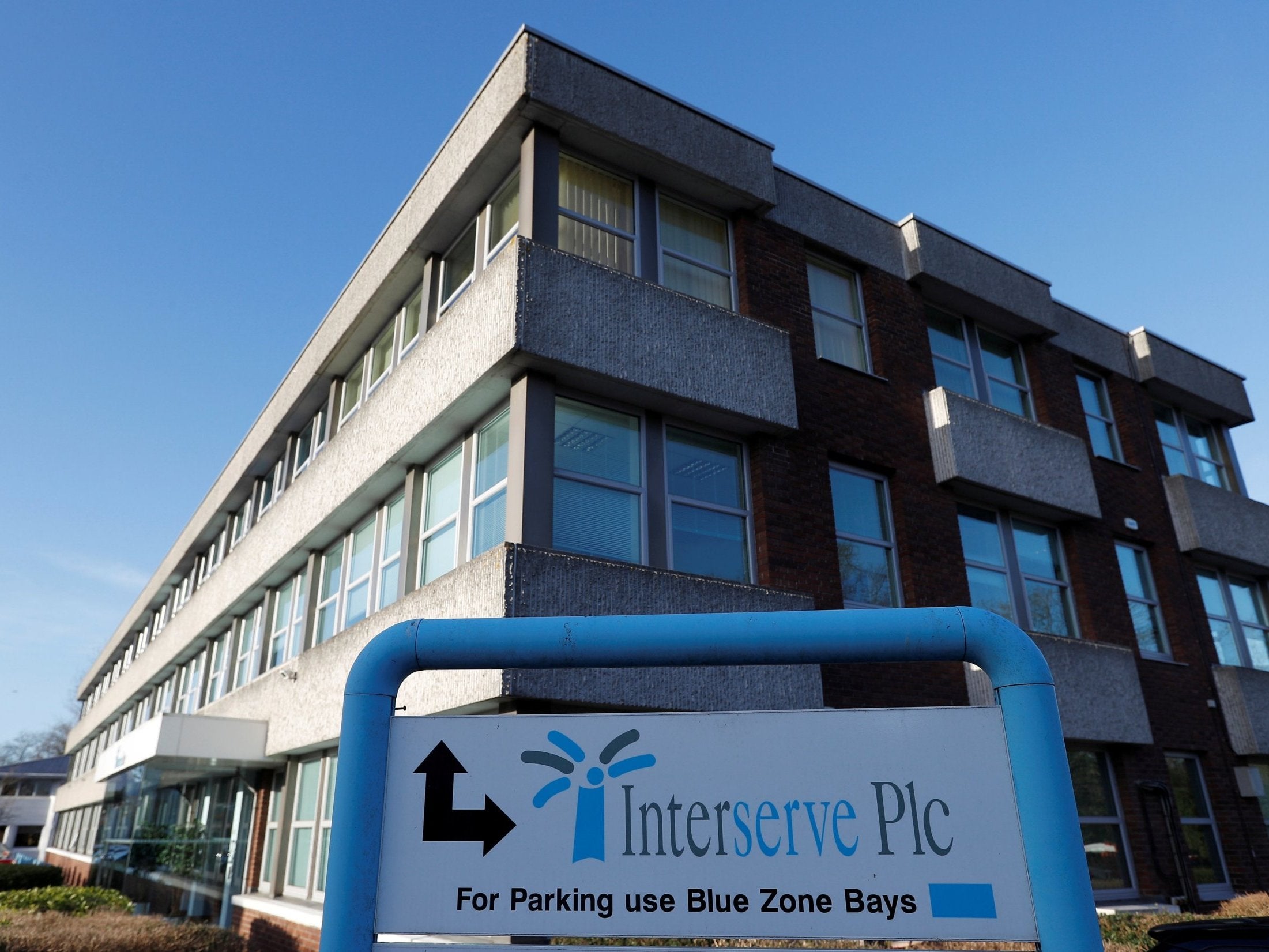Contractors in crisis: Could Interserve turn into Carillion 2.0?
The shares crashed in the wake of the company - that does everything from providing school dinners to hospital cleaning - saying it needs new money and is in talks with lenders over its £600m plus debt pile

Your support helps us to tell the story
From reproductive rights to climate change to Big Tech, The Independent is on the ground when the story is developing. Whether it's investigating the financials of Elon Musk's pro-Trump PAC or producing our latest documentary, 'The A Word', which shines a light on the American women fighting for reproductive rights, we know how important it is to parse out the facts from the messaging.
At such a critical moment in US history, we need reporters on the ground. Your donation allows us to keep sending journalists to speak to both sides of the story.
The Independent is trusted by Americans across the entire political spectrum. And unlike many other quality news outlets, we choose not to lock Americans out of our reporting and analysis with paywalls. We believe quality journalism should be available to everyone, paid for by those who can afford it.
Your support makes all the difference.Things that make you go hmm: In January there was a report in the FT that Interserve, an outsourcing company, had been placed under special monitoring by ministers, sparking fears of an rapid re-run of the still burning collapse of Carillion scandal.
The Cabinet Office hurried out a statement in response. It said this: “We monitor the financial health of all of our strategic suppliers, including Interserve. We are in regular discussions with all these companies regarding their financial position. We do not believe that any of our strategic suppliers are in a comparable position to Carillion.”
Since then the situation at Interserve has deteriorated and it’s now in rather urgent talks with its lenders about turning a substantial chunk of its £600m plus debt pile into shares and getting some new money into the business.
Unite, the union, raised the spectre of Carillion in response, warning that a rerun of the latter’s ignominious collapse, and the chaos that followed, is a risk. Small wonder.
We’re not quite there yet, though. The company's lenders are said to be supportive. They’re going to take a nasty hit but the alternative - administration and a godawful mess - would likely be far worse. That might sound rather familiar (clue: Brexit).
Ministers will be cheering them on if they do sign on the dotted line. They or their officials have probably been making calls, assuming they’ve been able to tear themselves away from the chaos their government is sowing in the country (Brexit again).
They need Interserve - which does everything from providing school dinners to cleaning hospitals to building things - going pop like a hole in the head.
“We are making good progress with our deleveraging plan,” said CEO Debbie White, the industry veteran appointed to sort out the mess, largely created by a unwise move into producing energy from waste.
That’s what she had to say, however. The problem with these situations is that today’s good progress can oh so easily turn into tomorrow’s disaster.
It’s already that for the company’s punch drunk investors. The stock was above 120p at the beginning of the year and close to 350p at the beginning of 2017. You could have picked the shares up for 6p this morning. Although they recovered from there, the level at which they found stability (just above 11p) was more than 50 per cent lower than where they ended last week.
All this comes just a week after Kier, a construction outfit that also does a lot of Government work, announced a cash call of its own. Hedge funds promptly steamed into the sector and made a bundle from short selling the shares of its constituents.
I said at the time of Carillion that there was an urgent need for a debate about the Government’s outsourcing mania, and the state of the industry that has grown up around it.
The evidence of problems wasn't hard to find even before the sector’s recent troubles. The notion that the private sector is always better than the public sector simply doesn’t stand up to close scrutiny. These jack of all trade companies are masters of none. Interserve’s woes only serve to underline that point. Yet public contracts, and public money, continue to be showered upon them.
This morning, for example, saw the announcement of the award of a contract to undertake work at the Prince Charles Hospital in Merthyr, funded by the Welsh government.
The identity of the winner? Interserve.
Join our commenting forum
Join thought-provoking conversations, follow other Independent readers and see their replies
Comments